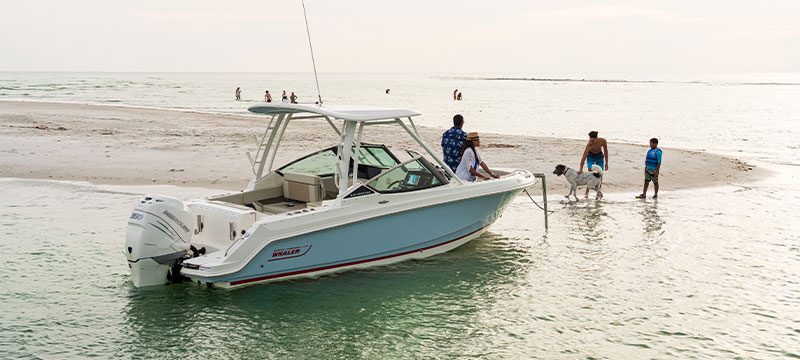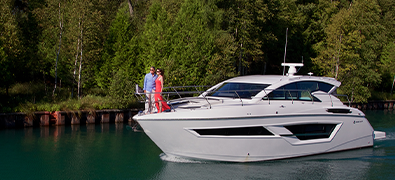Ten Boating Myths Explained
The old saying goes: "Red sky at night, sailor's delight. Red sky in the morning, sailors take warning." While we can't make any guarantees, there is a bit of truth to this. When the sky is red at sunset, the setting sun is casting its light through a high concentration of dust particles; this generally indicates high pressure and stable air coming in, which means good weather is on the way. Conversely, a red sky at sunrise can indicate a high pressure system has already passed, with a low-pressure storm system potentially following.
Adding blades to your propeller does not add speed to your boat. In fact, the fastest boats on the water today have just two propeller blades and can push boats to speeds of over 200 mph. More blades can minimize vibration, but if you're looking for speed, you'd best look elsewhere within your engine.
Who's up for a quick trigonometry refresher? For starters, our sight is a straight line to Earth's curve. We can boil the math down to a simple formula, just taking the square root of your "height of eye" (how high above sea level our head is when on deck) to find the distance to the horizon. If your height of eye is 6.6 feet above earth's surface (which is normal aboard a small boat), you can see about 2.5 miles out. Climb your way up to the flybridge to increase your height of eye to 13 feet, and you can now see about 3.6 miles away.
This one goes back centuries and involves a few theories based on more than simply slipping on the peel. In the 1700's, times of heavy trading between Spain and the Caribbean, most of the ships that disappeared happened to be carrying bananas as cargo. Whether the two facts were coincidental or not is up to you to decide! There are other theories for why boaters share a disdain for bananas; one is that because the fruits spoil so quickly, transporters had to hurry to get to their destination, meaning fishermen were rarely able to catch anything. Another threat posed by bananas is the deadly toxic fumes they produced in the heat of the storage hull. Lastly, some say that a species of deadly spider would hide within bunches of bananas; their lethal bite would quickly kill a boater, adding to the fear of carrying bananas on board.
It's believed that boats develop a life and mind of their own once named and christened. If you do feel the need to rename your boat, a de-naming ceremony is common practice. Start by writing the name of the boat on a piece of paper, folding it up, and placing it in a wooden box. Then burn the box, scoop up the ashes, and scatter them into the sea.
While sailboat skippers may think they always have the right of way, the truth is that they do not. When running on power, a sailboat is no different from any other powerboat (except for the difference in power). Although sailboats do not have any actual priority, it's safest to steer clear anyway.
The logic behind this common myth is that your fuel system will pick up contaminants from the bottom of the tank, draw it into the engine, and damage the engine. However, the amount of fuel in the tank doesn't make a difference (until you run out!); all fuel tanks pull fuel from the bottom, so there's no use in worrying about it.

Find Your Perfect Boat Today

Brush Up Your Boating Skills

